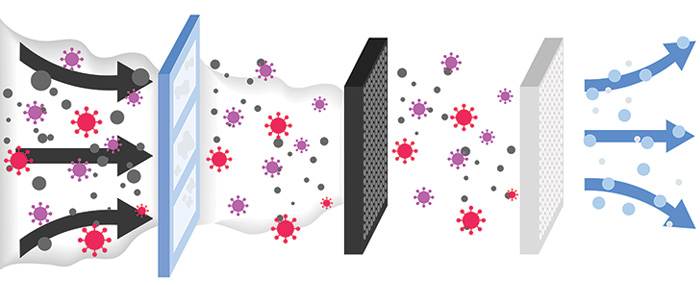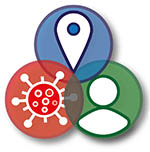
How effective are HEPA air filters at reducing risk of respiratory virus spread?
HEPA filter-based air cleaners are likely to be beneficial for reducing transmission risk.
There is growing evidence that air cleaners based on HEPA filters can be effective at reducing the number of small particles in the air. (Removal of Airborne Severe Acute Respiratory Syndrome Coronavirus 2 (SARS-CoV-2) and Other Microbial Bioaerosols by Air Filtration on Coronavirus Disease 2019 (COVID-19) Surge Units | Clinical Infectious Diseases | Oxford Academic (oup.com)) They are therefore likely to be able to reduce exposure to particles in the air that carry viruses.
HEPA filters are most effective at reducing risk from infectious particles that remain airborne over longer distancing (> 1-2m). They are less effective for a disease normally spread by contaminated surfaces or close-range inhalation.
Where airborne transmission of a disease is the most common way of spreading it, these devices will nearly always have some benefits in reducing risk.






0 Comments